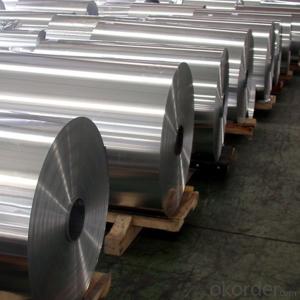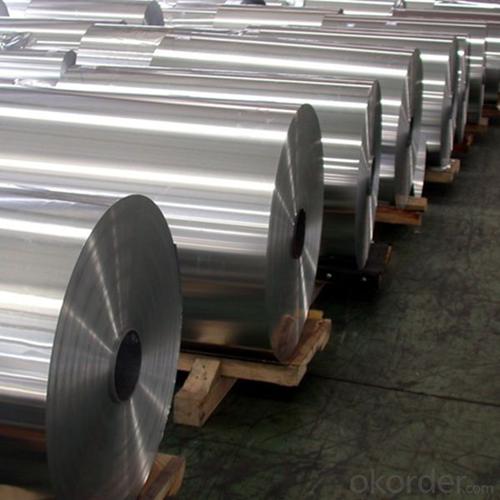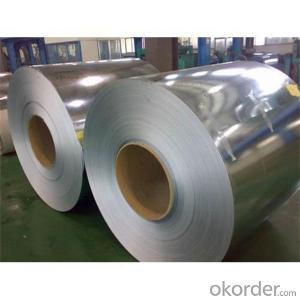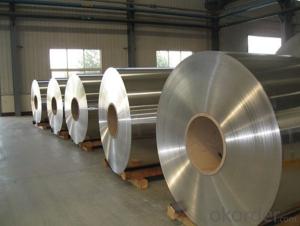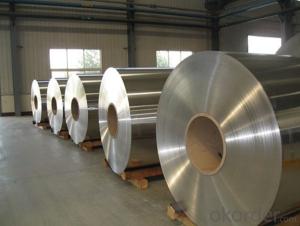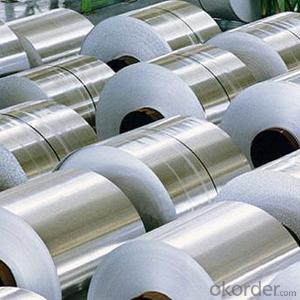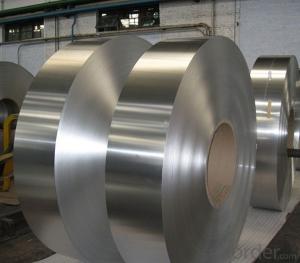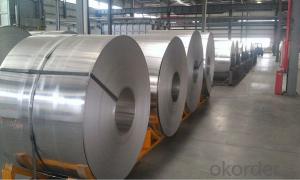Aluminum Coil Roller for Hot Rolled Aluminium Coil AA3005 for Building
- Loading Port:
- Shanghai
- Payment Terms:
- TT OR LC
- Min Order Qty:
- 5 m.t.
- Supply Capability:
- 10000 m.t./month
OKorder Service Pledge
OKorder Financial Service
You Might Also Like
Specification
1. Specification of Hot Rolled Aluminium Coil AA3005 for Building
characteristics | Application |
1) Super peeling strength | 1) Building exterior curtain walls |
2) Excellent surface flatness and smoothness | 2) Decoration and renovation additions for old buildings |
3) Superior weather, corrosion, pollutant resistance | 3) Decoration of interior walls, ceilings, bathrooms, kitchens and balconies |
4) Even coating, various colors | 4) Shop door decorations |
5) Fireproof, excellent heat and sound insulation | 5) Advertisement board display platforms and signboards |
6) Superior impact resistance | 6) Wallboards and ceilings for tunnels |
7) Lightweight and easy to process | 7) Industrial materials, materials for vehicles and boats |
2. Application of Hot Rolled Aluminium Coil AA3005 for Building
(1).Interior: wall cladding, ceilings, bathrooms, kitchens and balconies, shutters, doors...
(2).Exterior: wall cladding, facades, roofing, canopies, tunnels, column covers , renovations...
(3).Advertisement: display platforms, signboards, fascia, shop fronts...
3. Feature of Hot Rolled Aluminium Coil AA3005 for Building
• Our goods quality is top, the surface is smooth, and every steel coil
• No Joint, No Bends, no spots, no roller marks.
• MTC will be provided with goods, third part inspection is acceptable, for example, SGS, BV. Etc
Be free from Oil Stain, Dent, Inclusion, Scratches, Stain, Oxide Dicoloration, Breaks, Corrosion, Roll Marks, Dirt Streaks and other defect which will interfere with use
4. Certificate:
SGS and ROHS(if client request, paid by client), MTC(plant provided), Certificate of Origin(FORM A, FORM E, CO), Bureau Veritas and SGS (if client request, paid by client), CIQS certificate
5. Image of Hot Rolled Aluminium Coil AA3005 for Building
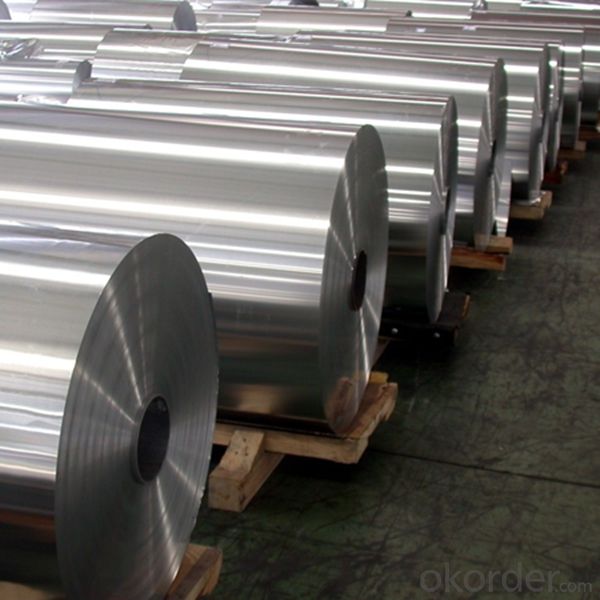
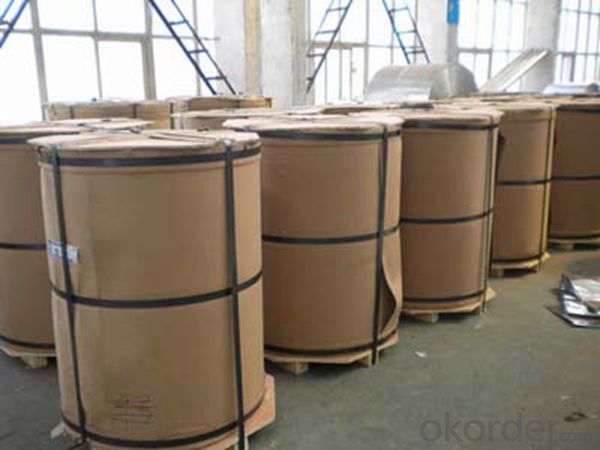
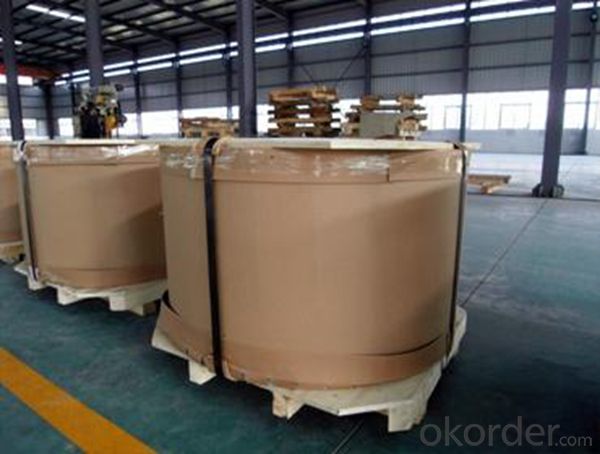
6. Package and shipping of Hot Rolled Aluminium Coil AA3005 for Building
eye to wall
eye to the wall
with wood pallet (wooded case also available)
7. FAQ
1) What is the delivery time?
Dpends on actual order, around 20 to 35 days
2)What is the QC system:
We have QC staff of 20 persons and advanced equipment, each production is with MTC traced from Aluminum ingot lot.
3) What market do you mainly sell to?
Australia, America, Asia, Middle East, Western Europe, Africa etc
- Q: What are the potential applications of coil-brushed aluminum coils?
- Coil-brushed aluminum coils have a wide range of potential applications due to their unique properties. Here are some of the potential applications: 1. Architectural: Coil-brushed aluminum coils can be used in architectural projects such as building facades, roofing, cladding, and decorative elements. The brushed finish adds a sophisticated and modern look to the structures. 2. Interior Design: These coils can be utilized in interior design applications like wall paneling, ceiling tiles, partition screens, and decorative accents. The brushed texture provides a sleek and stylish appearance, making them suitable for residential, commercial, and hospitality settings. 3. Furniture: Coil-brushed aluminum coils can be incorporated into furniture designs, including tables, chairs, shelves, and cabinets. The brushed finish adds a contemporary touch to the furniture pieces, making them suitable for modern and minimalist styles. 4. Automotive: The lightweight and corrosion-resistant nature of aluminum make it an ideal material for automotive applications. Coil-brushed aluminum can be used in the manufacturing of interior trim, dashboards, door panels, and other decorative components in cars, trucks, and motorcycles. 5. Electronics: With its excellent conductivity and heat dissipation properties, coil-brushed aluminum can be used in the production of electronic devices such as smartphones, laptops, and tablets. The brushed finish adds a premium feel to these products. 6. Signage and Branding: Coil-brushed aluminum coils can be used in the manufacturing of signage and branding elements. The brushed texture enhances the visibility and aesthetics of the signs, making them stand out and convey a sense of quality and professionalism. 7. Kitchenware and Appliances: The durability, heat resistance, and easy cleaning properties of aluminum make it a popular choice for kitchenware and appliances. Coil-brushed aluminum can be used to produce cookware, bakeware, kitchen utensils, and appliance panels, providing a sleek and modern look to these products. 8. Packaging and Labeling: Coil-brushed aluminum coils can be utilized in the production of packaging and labeling materials. The brushed finish adds an elegant touch to product packaging, making it visually appealing and attractive to consumers. Overall, the potential applications of coil-brushed aluminum coils are vast, ranging from architectural and interior design projects to automotive, electronics, kitchenware, signage, and packaging industries. Their unique properties make them a versatile and desirable material for various applications.
- Q: Can aluminum coils be used in the production of electrical cables?
- Aluminum coils are applicable for the production of electrical cables. Due to its exceptional electrical conductivity and lightweight properties, aluminum is widely utilized in the electrical industry. Power cables, building wires, and other electrical conductors are often manufactured using aluminum coils. They are considered a cost-effective alternative to copper coils, which are pricier but have higher electrical conductivity. By incorporating aluminum coils in electrical cables, the overall weight of the cables can be reduced, facilitating easier installation and handling. Furthermore, aluminum coils exhibit good resistance to corrosion, making them suitable for outdoor and underground applications. Nonetheless, it is crucial to acknowledge that aluminum possesses a lower tensile strength than copper. Hence, it is imperative to consider proper design and installation techniques to ensure the longevity and reliability of aluminum-based electrical cables.
- Q: How are aluminum coils protected against moisture?
- To safeguard aluminum coils against moisture, a process known as coating is employed. A shielding layer of protective material, such as polymer or paint, is applied to the coils, creating a barrier between the aluminum and its surroundings. This coating effectively obstructs direct contact between moisture and the aluminum surface, mitigating the chances of corrosion and harm. Moreover, certain manufacturers may choose to augment moisture resistance by applying a specialized sealant on the coil edges. Through these protective measures, the durability of aluminum coils is maintained, enabling them to function optimally even in environments characterized by humidity or dampness.
- Q: What are the common sizes and dimensions of aluminum coils?
- The common sizes and dimensions of aluminum coils vary depending on the specific application and industry requirements. However, some commonly used sizes include widths ranging from 2 inches to 60 inches and thicknesses ranging from 0.008 inches to 0.25 inches. The length of the coils can vary as well, depending on the customer's needs.
- Q: Can aluminum coils be used for heat transfer applications?
- Yes, aluminum coils can be used for heat transfer applications. Aluminum is known for its excellent thermal conductivity, which means it is highly effective in transferring heat. Aluminum coils are commonly used in various heat transfer applications such as air conditioning systems, refrigeration units, and heat exchangers. The lightweight and corrosion-resistant properties of aluminum also make it a popular choice for these applications. Additionally, aluminum coils can be easily shaped and formed, allowing for efficient heat transfer in complex systems.
- Q: Are aluminum coils suitable for marine environments?
- Aluminum coils are suitable for marine environments due to their excellent corrosion resistance properties. Aluminum has a natural oxide layer that forms on its surface, providing a protective barrier against saltwater corrosion. This makes aluminum coils highly resistant to rust and deterioration caused by exposure to marine conditions. Moreover, aluminum is lightweight, making it a preferred choice for marine applications where weight reduction is essential. Additionally, aluminum coils offer good thermal conductivity, which is beneficial for dissipating heat in marine cooling systems. Overall, aluminum coils are a reliable and durable choice for marine environments, ensuring long-lasting performance and minimal maintenance requirements.
- Q: Are aluminum coils suitable for roofing?
- Absolutely, roofing can indeed make use of aluminum coils. Aluminum, a material highly durable and lightweight, has found extensive application in the construction sector for roofing. It presents numerous advantages, including resistance against rust, corrosion, and fire, rendering it an optimal choice for regions enduring severe weather or heightened humidity. Furthermore, aluminum coils boast exceptional thermal conductivity, facilitating the reflection of sunlight and consequent reduction in energy consumption, thereby resulting in decreased cooling expenses. Moreover, the installation and maintenance of aluminum roofing are easily accomplished, ensuring enduring safeguarding for residential, commercial, and industrial structures.
- Q: How does the alloy composition affect the properties of aluminum coils?
- The properties of aluminum coils are significantly influenced by their alloy composition. To enhance specific characteristics, aluminum is often combined with elements like copper, manganese, magnesium, and zinc. The strength of aluminum coils is a key property that is impacted by the alloy composition. Copper and zinc alloys, such as the popular 6061 or 7075 aluminum alloys, are renowned for their high strength, making them suitable for structural purposes. Conversely, manganese and magnesium alloys, like the 3003 or 5052 aluminum alloys, offer improved formability and are commonly used in the construction of automotive components or packaging materials. Corrosion resistance is also affected by the alloy composition of aluminum coils. For example, the addition of magnesium in alloys like 5052 or 5083 enhances their resistance to corrosion in marine environments, making them ideal for boat building or other marine applications. On the other hand, copper alloys possess excellent resistance to atmospheric corrosion and are frequently utilized in outdoor structures or architectural applications. The thermal conductivity of aluminum coils is another crucial property impacted by the alloy composition. Copper alloys exhibit high thermal conductivity, making them efficient for heat transfer applications such as heat exchangers or radiators. Aluminum-magnesium alloys, like 3003 or 3004, have lower thermal conductivity, making them suitable for applications where heat dissipation is desired, such as heat sinks in electronic devices. Additionally, the alloy composition can influence the electrical conductivity of aluminum coils. Copper alloys, with their high electrical conductivity, are commonly used in electrical wiring and conductors. However, aluminum-magnesium alloys, despite having lower electrical conductivity than copper, are still widely employed in electrical transmission lines and overhead power cables due to their lightweight nature. In conclusion, the alloy composition of aluminum coils plays a crucial role in determining their properties. It affects their strength, corrosion resistance, thermal conductivity, and electrical conductivity, allowing them to be customized for specific applications.
- Q: who discovered aluminum and in what year did they discover it?
- Aluminum was named for one its most important compounds, alum. Alum is a compound of potassium, aluminum, sulfur, and oxygen. The chemical name is potassium aluminum sulfate, KAl(SO4)2. No one is sure when alum was first used by humans. The ancient Greeks and Romans were familiar with the compound alum. It was mined in early Greece where it was sold to the Turks. The Turks used the compound to make a beautiful dye known as Turkey red. Records indicate that the Romans were using alum as early as the first century B.C. It was first ISOLATED in 1827 by German chemist Friedrich W?hler (1800-82). W?hler used a method perfected by English chemist Sir Humphrey Davy (1778-1829),
- Q: Can aluminum coils be used for industrial piping?
- Industrial piping can indeed utilize aluminum coils. Aluminum, being a versatile and lightweight material, presents numerous advantages for industrial piping purposes. Its exceptional resistance to corrosion makes it a suitable choice across various industries such as chemical, petrochemical, and food processing. Moreover, aluminum coils are effortlessly manageable and can be molded into diverse configurations and dimensions, providing flexibility when designing and installing piping systems. Furthermore, aluminum's commendable thermal conductivity proves advantageous for applications that necessitate heat transfer. Nevertheless, it is crucial to carefully contemplate the specific requirements of the industrial process and seek advice from professionals to guarantee that aluminum coils are appropriate for the intended application.
Send your message to us
Aluminum Coil Roller for Hot Rolled Aluminium Coil AA3005 for Building
- Loading Port:
- Shanghai
- Payment Terms:
- TT OR LC
- Min Order Qty:
- 5 m.t.
- Supply Capability:
- 10000 m.t./month
OKorder Service Pledge
OKorder Financial Service
Similar products
Hot products
Hot Searches
Related keywords
